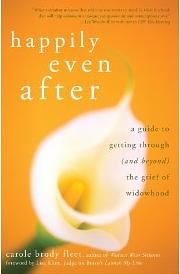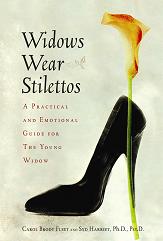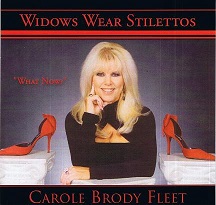It's October...and we all know what October has come to mean.
Breast Cancer Awareness Month
Many of us are right now wearing pink, buying pink and thinking pink. We're walk-a-thoning, run-a-thoning, bike-a-thoning, dance-a-thoning and any other kind of "a-thoning" imaginable, all in the name of raising both awareness and necessary funding for breast cancer research, support and services. The breast cancer conversation dominates our airwaves and brainwaves. Even major league sports have jumped on the awareness bandwagon (though I wish those same leagues truly understood that concern for the health and welfare of women -- those who are, for example, victims of domestic violence -- goes beyond wearing pink ribbons on suit lapels and players donning pink-accessorized uniforms...but that's another article).
While seeing breast cancer awareness raised to 21st century levels of conscience is truly a wonderful thing ... it is not enough.
Now, there was a time not so long ago that breast cancer was in the shadows. It simply was not discussed. Many women were actually ashamed to admit a diagnosis. There was no education about self-examinations, no real guidelines as to breast health, risk factors or symptoms. Further -- and tragically -- by the time women were diagnosed with the disease, it was many times "too late".
Both the climate and the accompanying stigma surrounding breast cancer changed dramatically when First Lady Betty Ford courageously stepped from the shadows and used her own breast cancer diagnosis to shine a spotlight on that which had been neglected for far too long. Awareness dramatically increased. Education became readily available. Women began to pay attention - really pay attention -- to their breast health. Men were finally acknowledged as also being vulnerable to breast cancer. Researchers began receiving badly-needed funding. The pink ribbon entered our culture in the early 1990s, followed by a myriad number of pink-themed charity efforts of all manner and many of which continue to this day. Meanwhile, the education, medical discoveries, support, treatments and protocols that have resulted from all of these efforts are phenomenal.
It is still not enough.
Why?
It is not enough because our ability to readily access regular mammograms as recommended by the American Medical Association** and the National Cancer Institute has been seriously compromised.
It is not okay.
***
You and I likely have one big thing in common. We are busy. Really busy. Seemingly non-stop busy. Walk-into-a-room-and-forget-why-you're-there busy. Looking-for-car-keys-that-are-in-your-hand busy. I am ashamed to also admit that despite being someone who has a moderate amount of intelligence, I was once a woman who, like many women today, was simply "too busy" to take one hour out of one day once a year to get a mammogram.
Until three years ago.
My doctor had written a prescription for my yearly mammogram, which I had ignored for several months -- and why not? My previous mammograms had always been 100% normal, so I saw no urgency to go rushing off to the boob-squashing place. A few months later, my former insurance company (that's right...an insurance company) sent me a notice saying, "Go get a mammogram". I put in on the pile on my desk entitled, "Things That I Will Handle When I Run Out of Anything Else To Do". Since I am never caught up, I never run out of things to do -- in other words, the notice from the insurance company also went ignored.
My "Wake Up, Idiot" call came when a well-known (and under 40 years of age) celebrity appeared on a national television show. To my horror, this young, very healthy, no-risk-factor celebrity revealed that she had been diagnosed with breast cancer. I wish I could explain why it was her diagnosis in particular that spurred me into immediate action. But spur me it did. Quickly.
I grabbed one of the prescriptions sitting on top of the "I'll Get Around To It Whenever" pile and immediately made an appointment. I had the mammogram, felt much better about myself and confidently went on being busy as usual.
Five days later, the telephone rang.
I don't remember much about the call except for three words:
"Suspicious nodular density"
In other words ... a mass.
I can say with all certainty that "suspicious nodular density" are among the three scariest words in the entire English language.
A barrage of testing began immediately thereafter. I didn't sleep for a month. I quit eating. I could not look at any members of my family without bursting into tears.
Happily, all the diagnoses were benign. However, the "suspicious nodular density" remains and I have been sternly warned that not only must I be seen regularly, I no longer have the "luxury" (which is code for "stupidity") of ignoring regular mammograms and ultrasounds as I am now considered at higher risk.
Vowing to live a life of breast health hyper-vigilance, I was later stunned when the U.S. Preventive Services Task Force (USPSTF) unilaterally decided that instead of yearly mammograms beginning at 40 years of age, the minimum recommended screening age should now be 50 years of age. Further, the screenings should now take place once every two years instead of annually ... and screenings should cease altogether once you reach 75 years of age. These recommendations were made in spite of the American Medical Association's continued guidelines which have not at all changed and to which physicians (and their patients) have adhered for decades.
I was furious.
I wondered how many millions have been diagnosed with breast cancer and were between the ages of 40 and 50 years of age? How many more were younger still? And why must mammograms cease after 75 years of age? Do you pass some kind of "sell-by" date? Does breast cancer not strike after the age of 75 years? Is it unimportant if you get breast cancer at that point?
Though I felt a haunting premonition that insurance companies would seize on these new recommendations and attempt to use them as a "Get Out Of Mammograms" card, I nonetheless believed that I was "safe". I was over 50, I was now popping abnormal mammograms and most recently (and sadly), my half-sister was diagnosed with and is currently undergoing treatment for ... yep ... breast cancer. I had the high-risk-factor trifecta, so yearly mammograms would not be a problem, right?
Wrong.
Keeping my vow of hyper-vigilance, I recently contacted my doctor's office to schedule my yearly mammogram -- and was informed that since my last mammogram was in 2013, I was not due again until 2015. That's right ... despite the increased risk factors and despite that at one point, I was undergoing testing every six months, I was now being denied a timely mammogram.
The message that they received in return was brief and to the point. I tersely requested the information required in order to file an appeal to their decision; that in view of my risk factors, I was not about to wait another year for a mammogram and that I would do anything and everything necessary to escalate my appeal. I further made it clear that this was not a threat ... it was a guarantee.
Within 24 hours, my mammogram was scheduled.
***
I know that you are busy. You may also have a perfect health history -- and that's fantastic. However, that perfect history can also become not-so-perfect. By all means, wear pink, participate in the run/walks and support the cause -- but please .. .for you and the people you love -- make the promise that you will get a mammogram. There is no better way to observe Breast Cancer Awareness Month than by taking care of you.
If your health care provider or your insurance company drag their collective feet because under the new recommendations, you are either now considered "underage" or the ubiquitous "they" feel that you do not need to be screened for whatever reason -- appeal the decision. This is your right as both a patient and a consumer. All insurance companies (including plans administered by the government) have an appeals process. Use it. Make it clear that you are not going away quietly; in fact, you are not going away at all. If doors are slammed in your face, you need only do a computer search for "free mammograms in [the area where you live]" and you can get a mammogram free of charge. Mammograms are not frivolous and your health is not up for negotiation -- do not let anyone attempt to "guideline" you away from that which you know to be medically reasonable and necessary.
Is breast cancer awareness better than it once was? Absolutely.
Do we need to continue to do more than wear, buy and "think pink", while passively accepting so-called guidelines that can prove hazardous -- or worse -- to our health?
Absolutely.
Be an advocate for health.
Be an advocate for basic rights.
Be an advocate for you.
**Source: The American Medical Association and the National Cancer Institute. For full guidelines, visit www.breastcancer.org



Carole's book, "Happily Even After..." is the winner of the prestigious Books for a Better Life Award. For more information about Carole Brody Fleet and Widows Wear Stilettos, please visit www.widowswearstilettos.com and www.carolefleetspeaker.com
Watch for Carole's third book coming in 2015.
Follow on Facebook at Widows Wear Stilettos
Follow on Twitter: @WidowsStilettos
Earlier on Huff/Post50:
